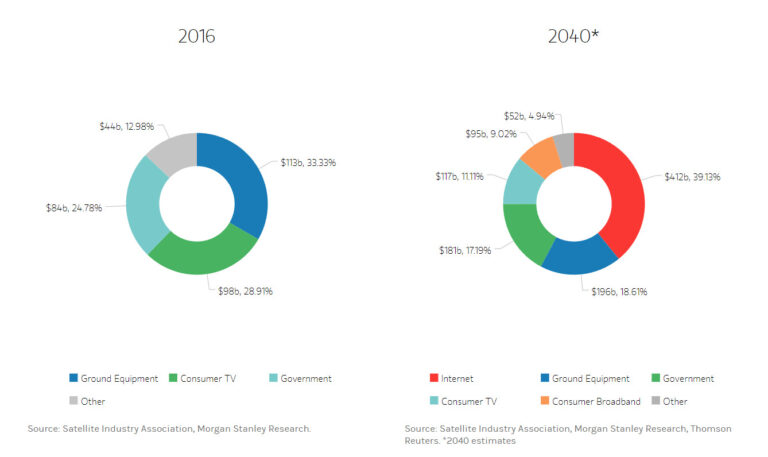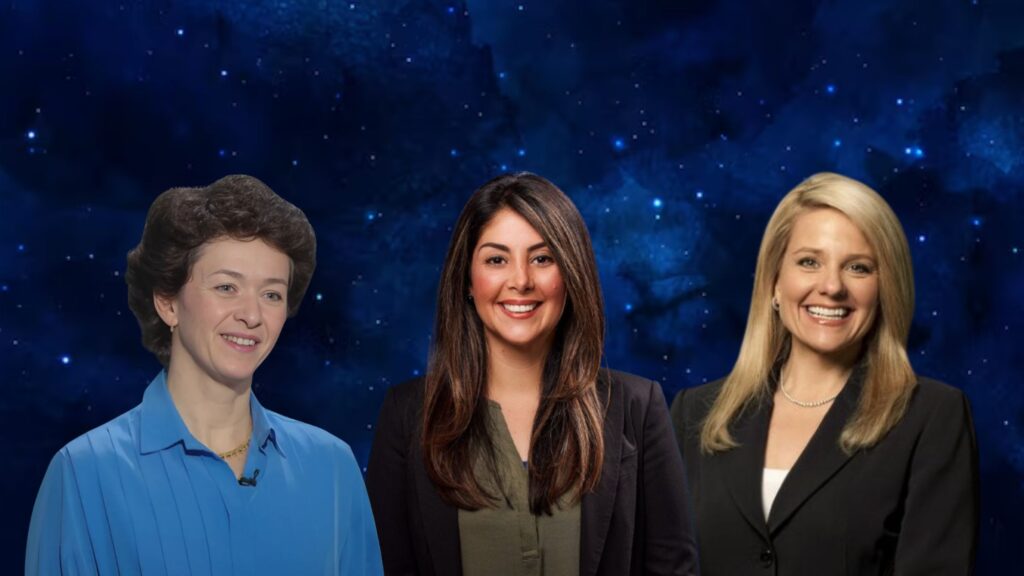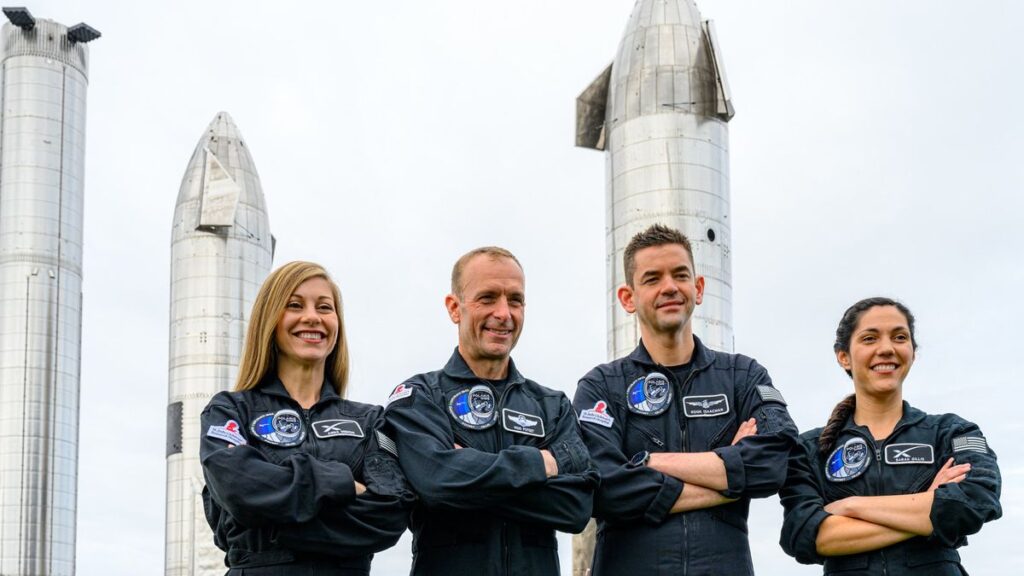Space Entrepreneurs: Breaking Barriers and Leading the New Space Economy
The new space economy is undergoing a revolution, driven by visionary entrepreneurs pushing the boundaries of what was once only the domain of governments. Private companies like SpaceX are not just launching rockets but also creating a thriving environment for the next generation of space exploration. While figures like Elon Musk dominate headlines, there’s a powerful wave of women entrepreneurs, engineers, and scientists contributing to this extraordinary venture.
The Dawn of the New Space Economy
The space economy is no longer solely defined by satellite launches and government programs. It now includes emerging sectors like space tourism, asteroid mining, and space-based data services. Startups and private enterprises are racing to make space more accessible and profitable. According to a 2020 report by Morgan Stanley, the global space economy could generate revenue exceeding $1 trillion by 2040 (Morgan Stanley, 2020). Luminary Labs adds that estimates from other major financial institutions like Citi and UBS predict the space economy could surpass $800 billion by 2028, driven by innovative business models, private-sector participation, and advances in space infrastructure(Luminary Labs – The Invisible $1 Trillion Economy). Companies like SpaceX, Blue Origin, and Virgin Galactic are leading this movement with projects such as reusable rockets, space habitats, and even Mars colonization.
SpaceX’s Polaris Dawn mission, set to be the highest Earth orbit mission since the Apollo era, is just one milestone pushing this sector into new horizons. As the dream of space evolves from fantasy to reality, entrepreneurs are opening doors for others to join in.

Women at the Helm of Space Exploration
Although the space sector has historically been male-dominated, more women are rising to prominent positions. Gwynne Shotwell, President and COO of SpaceX, plays a key role in making space exploration more accessible. Under her leadership, SpaceX has achieved monumental success, including the development of the Falcon 9 rocket, the only reusable rocket capable of delivering payloads to orbit. Shotwell proves that leadership in aerospace is no longer confined to traditional gender roles.
But Shotwell isn’t alone. Entrepreneurs like Dr. Natalia Archinard, leader of the United Nations’ Office for Outer Space Affairs, are creating pathways for space diplomacy and international cooperation. Dr. Jennifer Heldmann, a NASA scientist, is leading critical research on lunar and Martian water resources, which is essential for future human habitation. These women aren’t just breaking the glass ceiling—they are laying the foundations for a sustainable, equitable future in space.
Another key figure, Diana Trujillo, a Colombian aerospace engineer at NASA, led the team behind the robotic arm of the Mars Perseverance Rover. Her journey from Colombia to NASA exemplifies the potential for women globally, regardless of background, to make significant contributions to space exploration.

Polaris Dawn: A Milestone in Private Space Travel
SpaceX’s Polaris Dawn is a groundbreaking mission that not only aims to push the boundaries of human space travel but also focuses on raising awareness about space exploration for everyone. The crew will set out on the first private EVA (extravehicular activity) and aim to reach the highest Earth orbit ever achieved(Polaris Dawn Mission). The Polaris Dawn mission stands as a beacon of possibility, showing that the future of space exploration will be shaped by a diverse range of innovators, including women.
A standout aspect of Polaris Dawn is its focus on humanitarian goals. The mission has partnered with institutions to fund medical research that could benefit life in space and on Earth. This integration of space exploration with scientific advancement is a powerful reminder that space missions aren’t just about discovery—they’re also about improving life on Earth, making space accessible for all genders and regions, including underrepresented areas like Pakistan.

Space Innovation for Pakistan’s Women
In Pakistan, the growing community of young women interested in STEM (Science, Technology, Engineering, and Mathematics) can find powerful inspiration in space. The Women in Space campaign by the United Nations emphasizes the importance of women’s participation in space exploration and its economy, ensuring that space is accessible to everyone, everywhere.
Local institutions like the Space & Upper Atmosphere Research Commission (SUPARCO) serve as a vital gateway for women interested in space. Encouraging more girls to pursue careers in aerospace engineering, astrophysics, and space sciences can pave the way for Pakistan’s own contribution to the new space economy. Additionally, online platforms such as edX and Coursera offer free courses in space sciences, allowing Pakistani women to learn from global experts remotely.
While formal education is essential, community efforts are also key. Pakistani women can engage in space-related hackathons, join global forums like the Space Generation Advisory Council, or participate in projects supported by organizations such as Women in Aerospace. These activities provide crucial exposure to international networks, helping to build confidence and skills.
The Road Ahead
As the new space economy continues to evolve, it is essential that young women in Pakistan and around the world see themselves as key players in this journey. The pioneering women leading space ventures today—whether at SpaceX, NASA, or global organizations—demonstrate that the barriers to entry are being dismantled. With platforms like SUPARCO, educational resources online, and inspirational global figures, young women in Pakistan have the tools to not only dream but also take their own strides in the cosmos.
Space isn’t just a destination; it’s an opportunity. It’s an arena for breakthroughs that can change the trajectory of human history. Pakistan’s youth, especially those passionate about STEM, can and should seize this moment to contribute to an industry that is redefining the future of humanity.
The sky, as it turns out, is not the limit.

Maryam Salman
A-levels student | The Lahore Lyceum
Maryam is an A-levels student hailing from Lahore, Pakistan who is passionate about Tech-Driven movements, Human-Computer Interaction, and Psychiatry; You will often find her writing about how these fields intersect within the mundane tasks of life. She has been an avid reader since age five, and when she's not writing or reading, she finds joy in baking—it’s her favorite way to relax!
